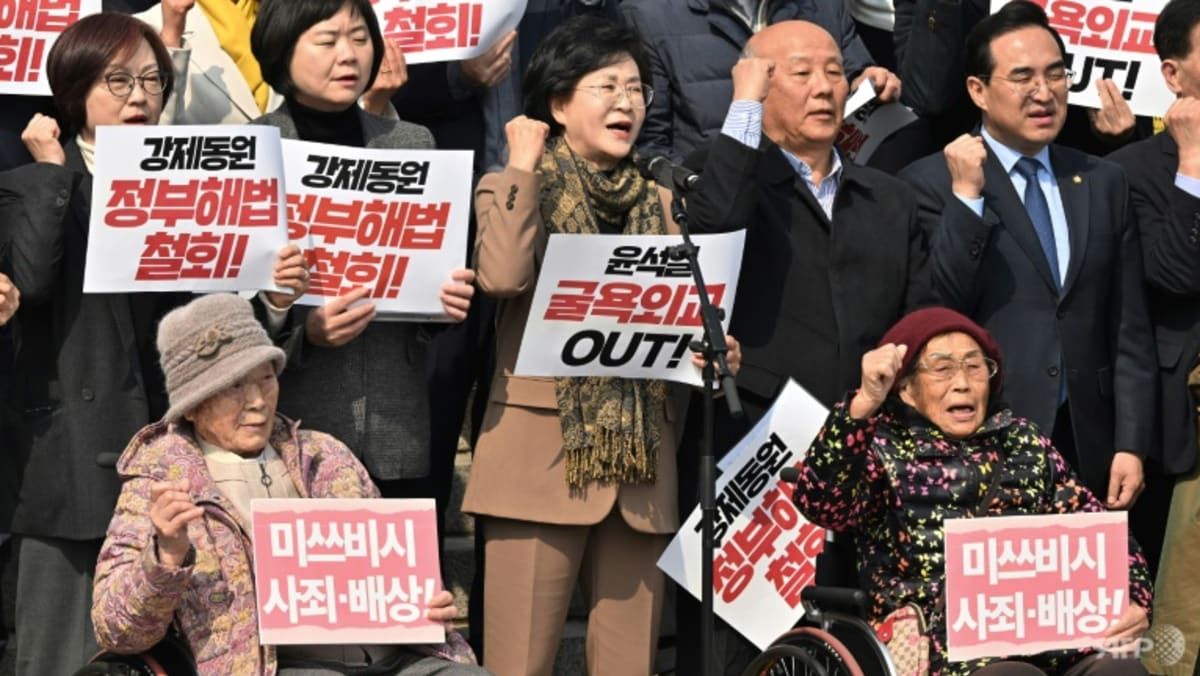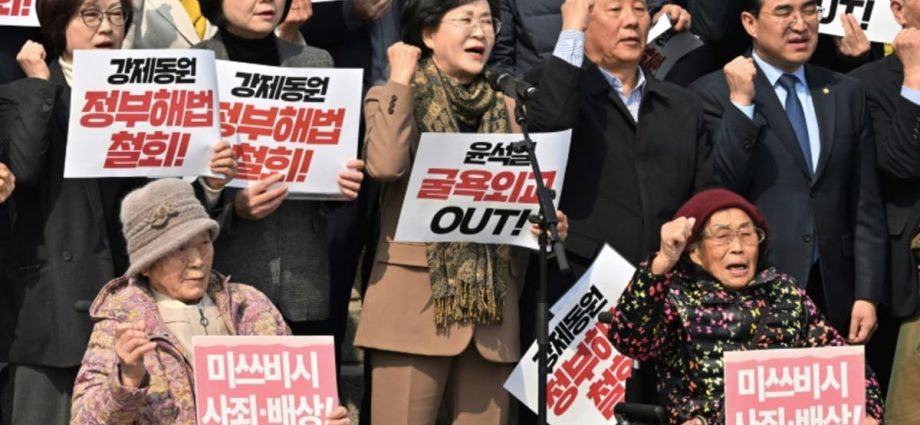
“I am 95 years old and I don’t know if I die today or tomorrow. But never in my life have I felt so distressed,” Yang Geum-deok, who worked at a Mitsubishi factory during the war, said at a rally in Seoul.
“Even if I die of hunger, I would not accept that dirty money,” she yelled, waving a placard that said: “Mitsubishi must apologise and compensate!”
Seoul aims to resolve lingering issues stemming from Japan’s brutal 1910-45 occupation of the Korean peninsula as it seeks closer ties with Tokyo in the face of growing threats from North Korea.
Around 780,000 Koreans were conscripted into forced labour by Japan during the colonial period, according to data from Seoul.
That number does not include Korean women forced into sexual slavery by Japanese troops.
“It was the Japanese who dragged us to Japan. Who do we turn to demand an apology?” said victim Kim Sung-joo at the rally, which was also attended by opposition politicians.
South Korea’s President Yoon Suk Yeol defended the plan on Tuesday, saying it was essential “for freedom, peace and prosperity, not only bilaterally but globally”.
The two countries restored diplomatic ties with the signing of the 1965 treaty, which included a reparations package of about US$800 million in grants and cheap loans.
Japan has long insisted that the agreement settled all claims relating to the colonial period.
It is unclear whether Japanese companies will make any contributions, with Nippon Steel saying Monday: “Our company’s understanding is that this issue has been resolved by the 1965 agreement”.

